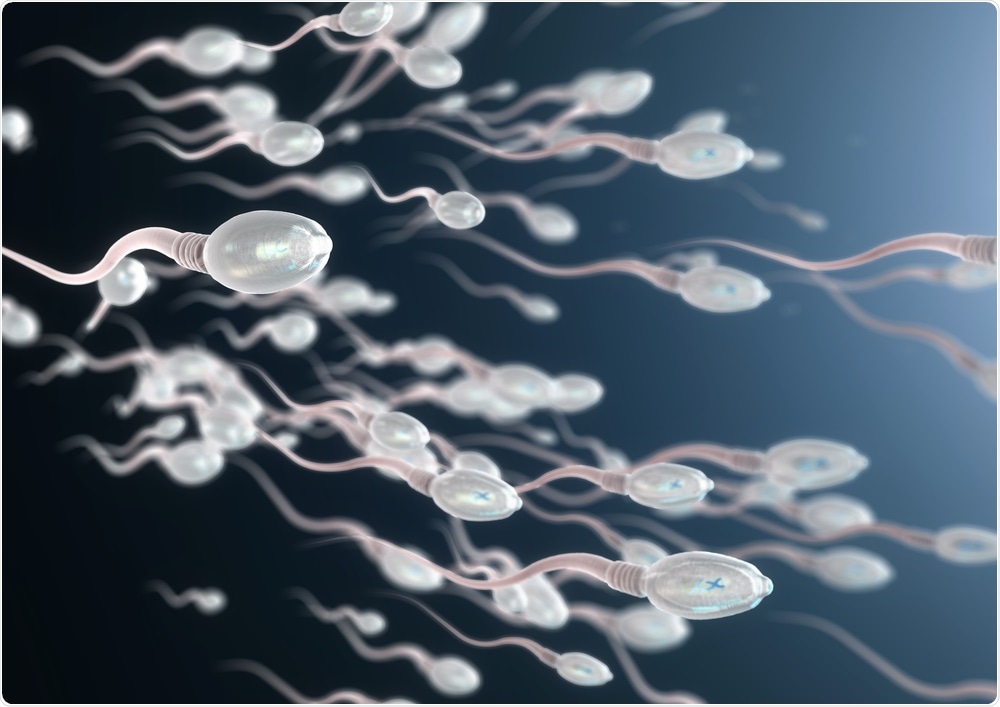A new analysis concludes that sperm donations taken from men after death are morally permissible. Experts believe that an opt-in sperm donation option, much like opt-in organ donation, would increase dwindling sperm stocks, following the implementation of strict regulations.

Image Credit: Christoph Burgstedt/Shutterstock.com
Sperm donation much like organ donation
Scientists confirm that sperm collected from men even up to 48 hours after death can be used to create viable pregnancies and healthy children. Experts who ran the analysis, Dr. Nathan Hodson, from the University of Leicester, and Dr. Joshua Parker, from Wythenshawe Hospital in Manchester, believe that collecting a donation of sperm posthumously is like collecting organ donations. They state that the morality of it is much the same, the sperm donation will be used to relieve the suffering of others, in this case, the suffering would be infertility.
A growing shortage of sperm donations in the UK
2,345 babies were born in the UK in 2017 following sperm donation. However, the supplies of donations are decreasing, and statistics show that fewer men are opting to make donations, which is suspected to be related to the laws around anonymity.
For example, back in 2014 saw the opening of a new national sperm bank based in Birmingham which received a government grant of £77,000. But the bank had stopped recruiting donors less than two years after it opened, with just nine men signing up after the launch, and two of those subsequently dropping out.
In the UK since 2005, it has been the law that any children born from sperm donations have the legal right to contact the donor once they turn 18. It is thought that this lack of anonymity is preventing men from feeling comfortable making donations.
Not everyone is in support of the idea of allowing the deceased to father a child. Professor of andrology at the University of Sheffield, Prof Allan Pacey, believes that rather focusing efforts on collecting sperm donations posthumously, there should be a switch in focus to encourage healthy, young men to donate, so that they are more likely to be around if the child should want to contact them.
There is very much a conflict between those who are focused on increasing sperm bank reserves so that more people can become parents who would not be able to otherwise, and those who are focused on the concerns of the potential impact on the child of never having the opportunity to know the man who donated their genetics to them.
500 children born to just 17 donors
The shortage of sperm donations in the UK is threatening more than just limiting the availability to couples with fertility problems. Recent figures have shown that just 17 men in the UK have fathered over 500 children between them. Another 104 men have fathered between 20 and 29 children each, and 1557 have fathered between 10 and 19.
This is causing medical experts' concern as they point out that because sperm donations are not screened for faulty genes, like those known to cause types of cancer, for example, there could be an unwilling spread of defective DNA to numerous children.
Also, it means that there are a lot of children being born with siblings that they are unaware of. Data has revealed that there are now over 18,000 children born with at least nine other half-brothers or sisters, which increases the risk of children of the same sperm donor unexpectedly meeting and unknowingly forming relationships with a sibling.
These statistics underline the need for a wider range of sperm donors in the UK, which could be achieved is posthumous donations become legal.